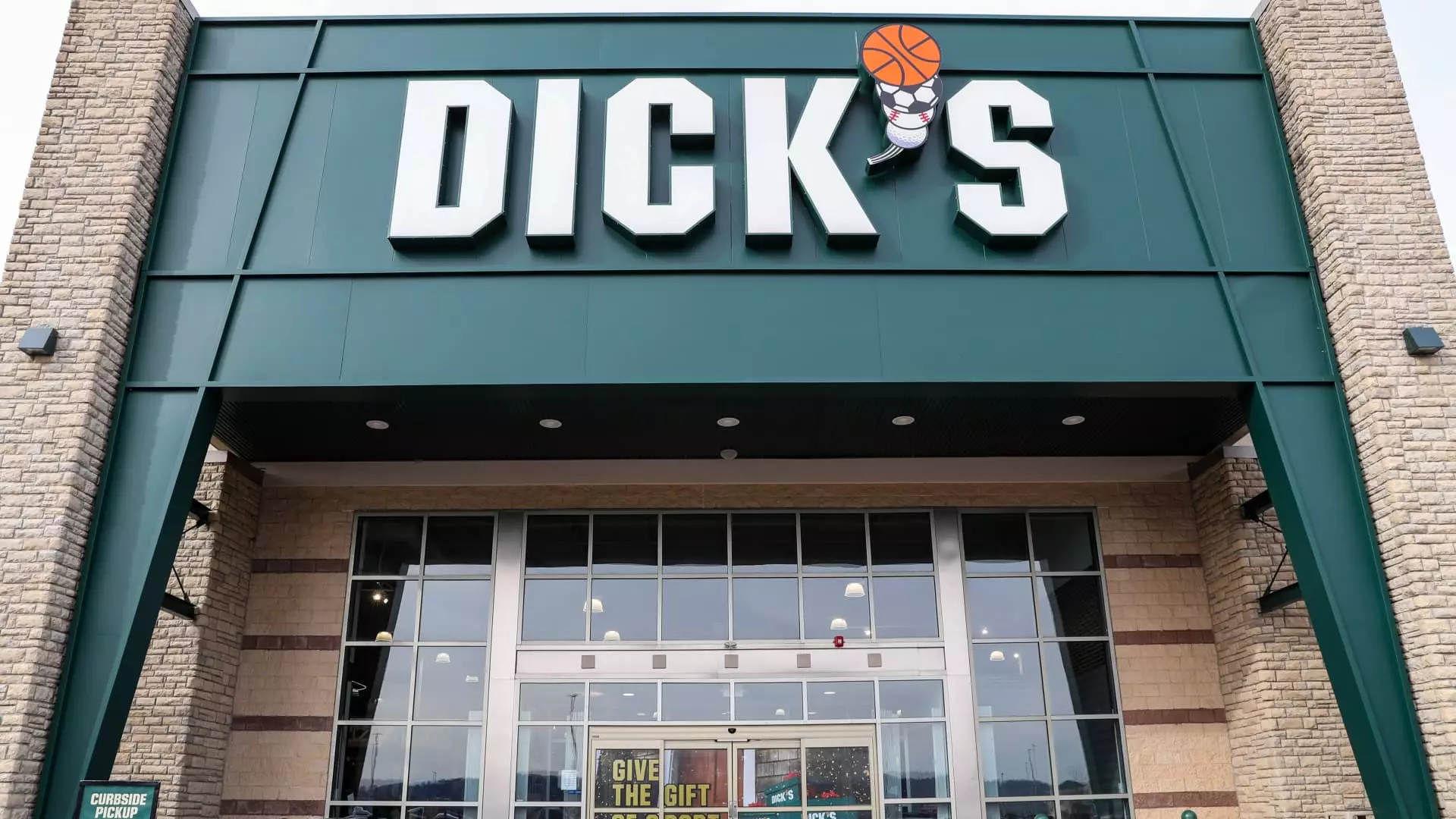In today’s midday market trading, significant tremors rattled the retail sector, highlighting the precarious balance these giants must maintain. Walmart, the behemoth known for its bargain prices and staggering revenue, saw its shares dip by a surprising 1%. Despite claiming a revenue of $165.61 billion—only slightly short of the predicted $165.84 billion—the retail giant faces an uphill battle. Management’s warning of potential price hikes due to tariffs sets off alarms for consumers who are already feeling the pinch from inflation. This news is underlining a critical truth: the era of consumer confidence is teetering on the edge, and the slightest misstep can lead to devastating consequences.
Meanwhile, Dick’s Sporting Goods experienced a dramatic plunge in stock value, nosediving 14% in the wake of its announcement to acquire Foot Locker for $2.4 billion. While this merger might seem strategic, it raises questions about the long-term viability of both companies. When shares of Foot Locker skyrocketed by 85% on the news, it illustrated a critical lesson in finance: the market doesn’t always favor the behemoth. The effects of these acquisitions might not come to fruition as predicted, and their profitability is uncertain as consumers tighten their belts.
A Health Insurer on the Brink: UnitedHealth Group
In a more troubling development, UnitedHealth Group’s stock deteriorated by an alarming 15%, marking its lowest intraday value in over five years. This is not merely a bad day; it signifies a potential disaster. The company is reportedly under investigation by the Justice Department for Medicare fraud, casting a long shadow over its credibility. While healthcare is often considered a recession-proof sector due to the perennial necessity of medical services, this case could redefine that assumption. The financial health of UnitedHealth is at stake, and so is the trust that consumers place in healthcare companies at large.
This incident reiterates an unfortunate truth about the healthcare industry: even the most seemingly untouchable giants can face existential threats when regulatory issues arise. Securing consumer trust is paramount, but when scandals such as this surface, the integrity of the entire sector is called into question.
The Rise and Fall of Tech Stocks
Contrasting with the retail and healthcare downturn, tech stocks demonstrated a quilt of mixed performances today. Cisco’s shares rebounded nearly 6% following an unexpectedly strong earnings report. With net earnings of 96 cents per share on revenue of $14.15 billion, Cisco’s positive guidance amid the uncertainty could serve as a beacon for other tech firms struggling in a tumultuous market.
On the other hand, companies like Fiserv, which plummeted by 13%, and Coinbase, whose stock slid over 4% due to alarming security breaches, underscore the volatility within the tech sector. While Cisco represents resilience, the struggles of Fiserv show that confidence can evaporate overnight, especially when expectations don’t align with outcomes. Coinbase, a leader in the crypto space, now faces an ethical quandary as it grapples with hackers demanding $20 million. Trust in the digital economy is fragile, and continual breaches may undermine the entire sector’s credibility.
The Chinese Market’s Struggles: Alibaba Takes a Hit
Shifting our view to the international stage, Alibaba’s presence offers a stark reminder of the current challenges facing the Chinese economy. Shares plummeted by 7% after the company reported earnings that fell short of expectations, although they did observe a staggering 279% increase in net income year-over-year, albeit from a significantly low base. The broader takeaway here illustrates the fragile consumer sentiment in China, an area that has been heavily impacted by macroeconomic volatility.
In an era where global revenues and economic stability are more interconnected than ever, Alibaba’s predicament serves as a window into the discontent simmering beneath the surface of the world’s second-largest economy. As more companies fall victim to economic turbulence, investors must tread carefully, weighing the potential for recovery against the risk of further downturns.
Stock Market Volatility: Investment or Gamble?
The performance of stocks today reveals a dual-edged sword—a mixture of insights that can either lead to solid investments or catastrophic losses. While some companies, like Boot Barn and CoreWeave, have thrived amidst adversity, the stark reality is that market conditions may shift swiftly and without warning. Investors cannot afford to adopt a complacent mindset; they must remain vigilant and prepared for a volatile landscape. The question remains: is the stock market a reliable avenue for investment, or has it become a high-stakes gamble for those daring enough to play its unpredictable game?

